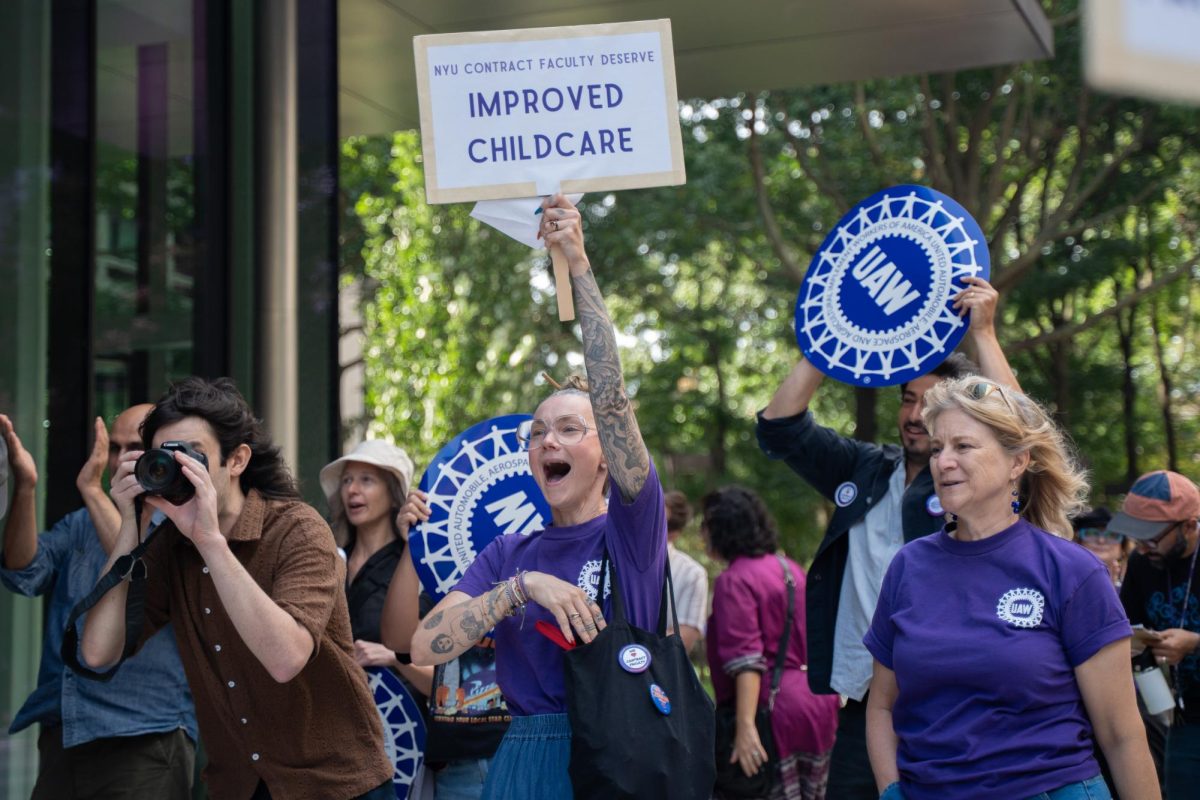Ferguson shooting signals need for police demilitarization
September 12, 2014
Americans have been confronting the issue of race in the justice system over the past month through the tribulations of Ferguson, Missouri. Michael Brown, an unarmed black 18-year-old, was infamously shot dead by police officer Darren Wilson on Aug. 9. Both the city and the country have been in an uproar since.
Although these names have become iconic, the protests are no longer just about Brown, or even about Ferguson. They have evolved into a national debate about the demilitarization of law enforcement and the general reformation of police departments in the United States. Ferguson is the culmination of years of tension in underprivileged, underrepresented and over-policed minority communities.
Ferguson must be looked at as one result of a nationwide trend of increased militarization and the accumulation and use of military-style tactics and equipment in police departments. According to an article in The New York Times, “The Pentagon has transferred to police departments tens of thousands of machine guns; nearly 200,000 ammunition magazines; thousands of pieces of camouflage and night-vision equipment; and hundreds of silencers, armored cars and aircraft.” The majority of this vast arsenal is used by police SWAT teams in raids, or perhaps a better word would be misused. According to a recent report by the American Civil Liberties Union, entitled “The War Comes Home: The Excessive Militarization of American Policing,” only 7 percent out of an investigated 800-plus raids were found to be genuine emergencies. Nearly 80 percent were, according to the ACLU, for carrying out search warrants, mainly drug searches.
This growing culture of militarism among police departments is indicative of a domestic problem in the United States. It has arguably caused police officers, military personnel and ordinary citizens to lose sight of what law enforcement is meant to do — to protect and serve the people, not threaten and intimidate them.
Military culture has always existed in American history as a trend of expansionism, from Manifest Destiny in the 19th century to modern American economic imperialism. It has only been in the past decades that militarism has become a domestic issue, beginning with the advent of Nixon’s “war on drugs” in 1971 and the formation of the Drug Enforcement Agency in 1973. These events started a trend of drug prohibition efforts that spiraled out of control with Reagan’s Anti-Drug Abuse Acts of 1986 and 1988. The acts created a mandatory five-year minimum sentence for the possession of either 500 grams of powder cocaine or 5 grams of crack cocaine, a ratio that became known as the 100:1 disparity. As the consequences of the drug war harshened, the ensuing police militarization to enforce these laws followed suit.
A 2006 ACLU report found that this law unfairly targeted underprivileged minority communities by creating harsher sentences for the possession or use of crack cocaine, as opposed to powder cocaine; the former is cheaper and is mainly used by lower income drug abusers and small-time dealers. The intersection between race and and police militarization is pervasive in the drug war, demonstrated by high incarceration and arrest rates of black men. Throughout all this, there has been a pervasive history of racial inequality, which has been further aggravated by the penal one-sidedness of these ethically unfounded federal laws.
Despite the tragedy, Ferguson can give Americans hope for the future and has already offered a launching pad for reform on a national scale. The U.S. Department of Justice is currently undergoing a civil rights probe into the Ferguson police department. Furthermore, the Ferguson City Council is establishing a Citizen Review Board that will help provide guidance for the police department and a congressional hearing was held recently to debate the militarization of police departments. Congress also passed the Fair Sentencing Act in 2010, which reduced the sentencing disparity between offenses for crack and powder cocaine from 100:1 to 18:1. This drug reform is particularly important given the aforementioned ways the drug war has impacted the intersection between blacks and police militarization. By reforming drug laws to more appropriately reflect the offense, the chance of militarization for enforcement is reduced. These efforts can herald in the beginning of something truly transformative in America. Norm Stamper, the former Seattle chief of police during the 1999 anti-globalization protests, voiced his support for a Citizen Review Board and the replacement of the militaristic police model in an op-ed published by The Guardian. This new model would emphasize the mentality of the Memphis Model — a form of intensive crisis prevention training for police officers — as well as the importance of citizen community leaders and good conduct among police officers with punitive consequences for those who engage in misconduct.
With racial inequality deeply entrenched in U.S. history, it is difficult to break the cycle of ignorance and inactivity. In order to heal the wounds of Ferguson, relations between law enforcement and the public must improve. Brown’s shooting should serve as a reminder that addressing racial injustice and police militarization is paramount. Communities cannot be rebuilt if citizens are distrustful of police, nor if police are distrustful of citizens.
Email Miguel Coronado at [email protected].




























































































































































